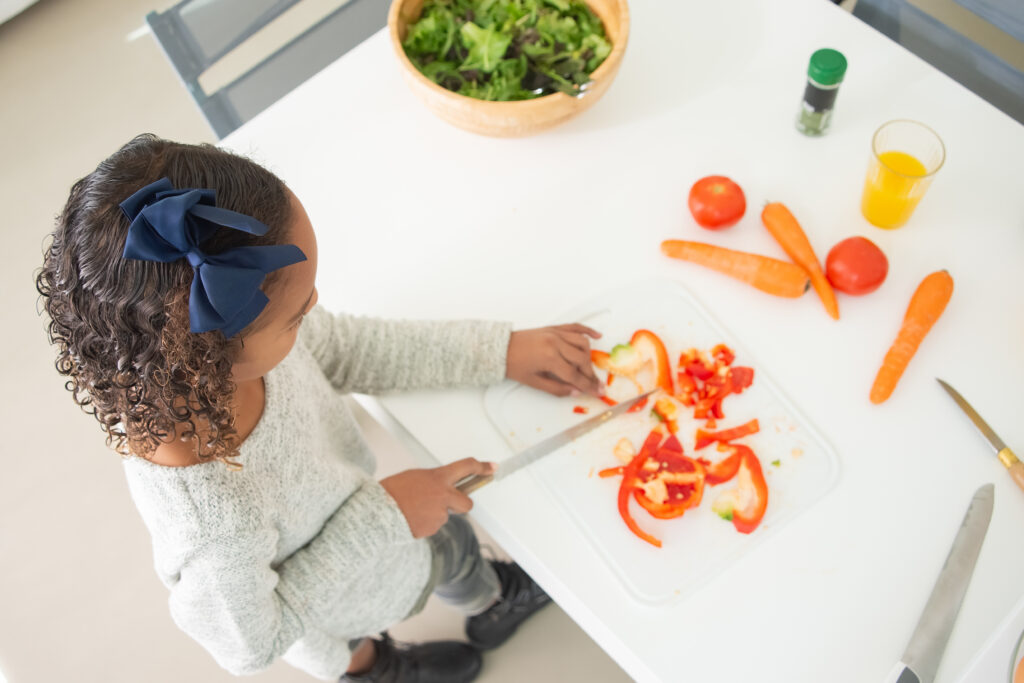Metro Parks is offering free cooking classes through their Mobile Teaching Kitchen, providing Tacoma residents with the opportunity to learn new cooking techniques and recipes that promote healthier eating habits. The mobile kitchen, housed in a vibrant green truck adorned with cartoon fruits and vegetables, travels to various locations, particularly in food deserts, to bring free meals directly to residents. By reducing transportation barriers and providing attendees with a swag bag containing an apron, recipe copies, and a $50 Safeway gift card, Metro Parks aims to empower individuals to recreate the meals at home with little cost. The program has been made possible through partnerships with Regence Blue Shield, America Healthy Heart, and Safeway, and future plans include expanding programming to improve culinary skills for both youth and adults.

Overview
This comprehensive article explores the Metro Parks Mobile Teaching Kitchen program in Tacoma, which aims to bring healthy meals to food deserts, provide cooking classes and recipes, and offer incentives such as swag bags and gift cards. The article will delve into the upcoming cooking classes and their menus, as well as the history of the mobile kitchen, including the delays faced and the shift to online culinary classes during the pandemic. It will also discuss the partnerships and funding that have made this initiative possible. The article will touch upon the future plans of the program, including expanding demonstrations and hands-on cooking classes to improve the culinary skills of both youth and adults. The article will introduce Chef Jason Coleman, one of the chefs in the mobile kitchen who teaches senior cooking classes. The thoughts and feedback of the community attendees will also be highlighted. Finally, the article will conclude with a summary of the program and its impact on the community.
The Metro Parks Mobile Teaching Kitchen
The Metro Parks Mobile Teaching Kitchen program aims to address the issue of food deserts in Tacoma by bringing healthy meals and cooking classes to underserved communities. Food deserts are geographic areas with limited access to affordable and healthy foods. The mobile kitchen, a green truck adorned with cartoon fruits and vegetables, travels to these areas, providing free cooking classes and empowering residents to eat healthier. The program teaches new cooking techniques and provides easy recipes that residents can replicate in their own kitchens for little cost. By bringing healthy meals directly to residents, the mobile kitchen reduces transportation barriers and facilitates healthy eating habits.
To incentivize participation, the program offers attendees who register online a swag bag containing an apron, a copy of the recipe demonstrated, and a $50 gift card to Safeway. The idea behind the gift card is to enable attendees to recreate the meals at home using the ingredients from the gift card. This not only encourages healthy cooking but also helps alleviate any financial burden associated with purchasing the necessary ingredients.

Free Groceries With Metro Parks
Upcoming Cooking Classes
The mobile teaching kitchen has several upcoming cooking classes that residents can participate in. One of the menus for an upcoming class includes pan-fried Brussels sprouts and Korean spicy chicken tenders with sweet apples. It is an example of the diverse and nutritious recipes that the program aims to teach. The classes are scheduled for specific dates and locations, such as the Fern Hill Library on Friday from 2-3:30 p.m. Attendees can look forward to learning new recipes and cooking techniques that they can incorporate into their daily lives.
History of the Mobile Kitchen
The Metro Parks Mobile Teaching Kitchen program experienced some delays before it could start touring the community. The original plan was to begin touring in March 2020, but the pandemic disrupted those plans. Instead, Metro Parks offered free online culinary classes live from the mobile kitchen. The program adapted and used the truck in youth culinary camps, ensuring that the community still had access to cooking resources during challenging times. In 2022, Metro Parks partnered with the Summit Olympus charter school to offer high school culinary classes, providing students with their food handlers’ card to prepare them for a career in the culinary industry.
The mobile kitchen made its first tour in May of this year, and it is currently midway through its second iteration of free cooking classes. The truck returns to the community in September, and after next week, it is expected to pause its tours until the next year. The program’s future plans include offering more demonstrations and hands-on cooking classes. The goal is to expand the programming to improve the culinary skills of both youth and adults.

Meet Chef Jason Coleman
Chef Jason Coleman is one of the chefs who work in the Metro Parks Mobile Teaching Kitchen. He has a wealth of experience, having worked as a chef for about 30 years. While he considers himself semi-retired, he finds joy in teaching others how to cook. Coleman taught virtual cooking classes when the program shifted to an online format during the pandemic. Additionally, he has led several kids’ culinary camps and currently teaches senior cooking classes at the Center at Norpoint.
Coleman’s passion for cooking stems from his enjoyment of eating, as well as witnessing the “light-bulb moment” when his students grasp new cooking techniques. He finds fulfillment in empowering others to cook and experiment with different flavors and ingredients. Coleman’s expertise adds value to the Mobile Teaching Kitchen program by providing participants with valuable insights and skills.
Community Feedback
The Metro Parks Mobile Teaching Kitchen program has received positive feedback from the community. Attendees appreciate being able to learn new ways to cook and find recipes online. The program has been particularly well-received by older residents, as it offers them an opportunity to learn different cooking techniques and expand their culinary repertoire. Additionally, the program caters to individuals with specific dietary preferences, such as vegans, by incorporating vegan ingredients into the recipes demonstrated. Community members have expressed gratitude for the program’s contribution to their culinary knowledge and its provision of practical cooking tips.
Conclusion
The Metro Parks Mobile Teaching Kitchen program in Tacoma has proven to be a valuable resource for residents in food deserts. By bringing healthy meals directly to underserved communities, the program not only addresses the issue of limited access to affordable and nutritious foods but also empowers residents to take control of their own health by teaching them new cooking techniques and providing them with easy recipes to replicate at home. The program’s future plans of expanding demonstrations and hands-on cooking classes further emphasize its commitment to improving the culinary skills of both youth and adults. With the support of partnerships and funding from entities such as Regence Blue Shield, America Healthy Heart, and Safeway, the Mobile Teaching Kitchen program continues to make a positive impact on the Tacoma community.
